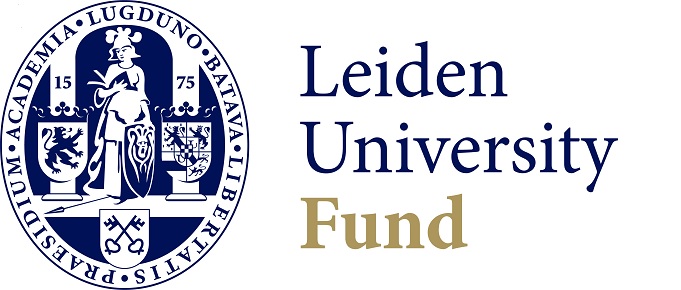
More applications, more support: a grant round with impact
Our annual project grant round this year attracted unprecedented interest: we received an impressive 107 applications – a marked increase compared with last year. Behind each application is a Leiden researcher with a special story. We spoke to three researchers who were granted an award and can now carry out their plans.

Researcher: Dr Iris Hartog (Medicine/LUMC)
Department: Palliative Care Expertise Centre
Project: Changing end-of-life care needs: care provider experiences
Grant: Gratama Fund
What does this grant mean to you?
‘It means expanding our research to include an additional, in-depth project focusing on the perspective of healthcare providers. This will give us a more complete picture of how patients’ needs and preferences for end-of-life care can change. These are patients with a terminal illness who are considering what treatments and types of care they may or may not want in the future, such as moving to a care facility, undergoing life-prolonging treatments like resuscitation or opting for euthanasia.’
What do you hope to achieve?
‘We hope the results will help us better inform patients about the possibility of expressing their care and treatment preferences, and that these preferences can change over time. This can support patients in stating and recording their wishes as realistically as possible, and in viewing living wills as ‘living documents’. We also aim to enable healthcare providers to support their patients even more effectively.’
What is the urgency?
‘End-of-life care is particularly relevant to society, partly because the medical options have increased so dramatically that people are more often faced with decisions about whether they still want life-prolonging treatments, considering the quality of life they might experience after.’
The LUF received over 100 applications for the annual project grant round. Based on the Committee for Academic Expenditure’s assessment, the available funding – and for some applications an evaluation by external foundations – we were able to award grants to 36 projects. Although these project grants are just a portion of the total number of grants the LUF awards each year, they highlight the diversity and innovative spirit of the Leiden University community. On behalf of this community, we would like to thank all the donors whose contributions support the research and teaching at Leiden University.

Researcher: Dr Rizal Shidiq (Faculty of Humanities)
Project: The contemporary and persistent economic effects of the Dutch colonial railway network in Indonesia
Grant: Dirkse-Bergsma Fonds
What are you going to research?
‘I’m going to study the economic effects of expanding the Dutch colonial railway network in Indonesia. More specifically, I’m researching both the immediate impact of this expansion on reducing trade costs in the early 20th century, and its long-term influence on the quality of present-day economic institutions.’
How will you go about that?
‘The majority of the work will involve gathering information from various sources, including official planning documents and newspaper reports, about the expansion of the railway network and interregional trade in Indonesia in the early 20th century. I’ll also collect district-level data on the quality of present-day economic institutions.’
What is your motivation for this research?
‘It’s part of my wider ambition to breathe new life into the study of Indonesian economic history, particularly among Indonesian students. That’s why this project also includes a workshop in Indonesia, designed to actively involve local researchers and students.
‘I’m also looking forward to exploring the exceptionally large, yet largely untapped historical economic data on Indonesia that Leiden is so fortunate to possess.’

Researcher: Dr Vera van der Noord (Faculty of Science)
Project: Unlocking anti-cancer immunity through reprogramming of triple-negative breast cancer by CDK12 and CDK13 inhibition
Grant: Schild-de Groen Fund
What do you hope to achieve?
‘Our research focuses on a potential new target for treating triple-negative breast cancer, an aggressive form for which few effective therapies currently exist. We are going to study the CDK12 protein, which plays a role in producing genetic messages (RNA) within the cell that ultimately determine how a cell behaves.
‘These messages are disrupted in cancer cells, allowing the tumour, for example, to suppress the immune system and evade our natural defence. Our results suggest that inhibiting CDK12 can reduce these immunosuppressive signals while enhancing stimulatory ones. That could potentially help the immune system to better identify and attack cancer cells.’
What is special about this project?
‘Whereas our previous research focused on directly targeting tumour cells, we’re now exploring whether this approach could also support the immune system. The collaboration with the LUMC is especially motivating because, with their support and patient permission, we’re able to use material from tumour tissue that has been surgically removed. This allows us to test our findings in laboratory models that more closely mimic real tumours.’
The best of luck to Iris, Rizal, Vera and all the other researchers with their research. We look forward to hearing about the results and the next steps in their academic careers.
